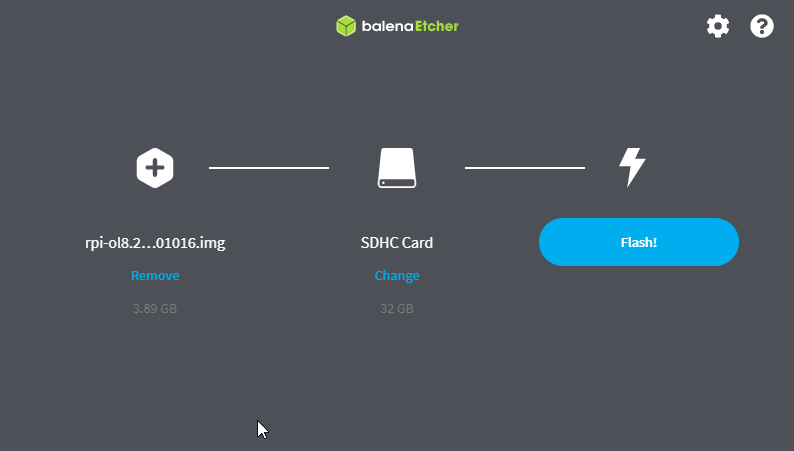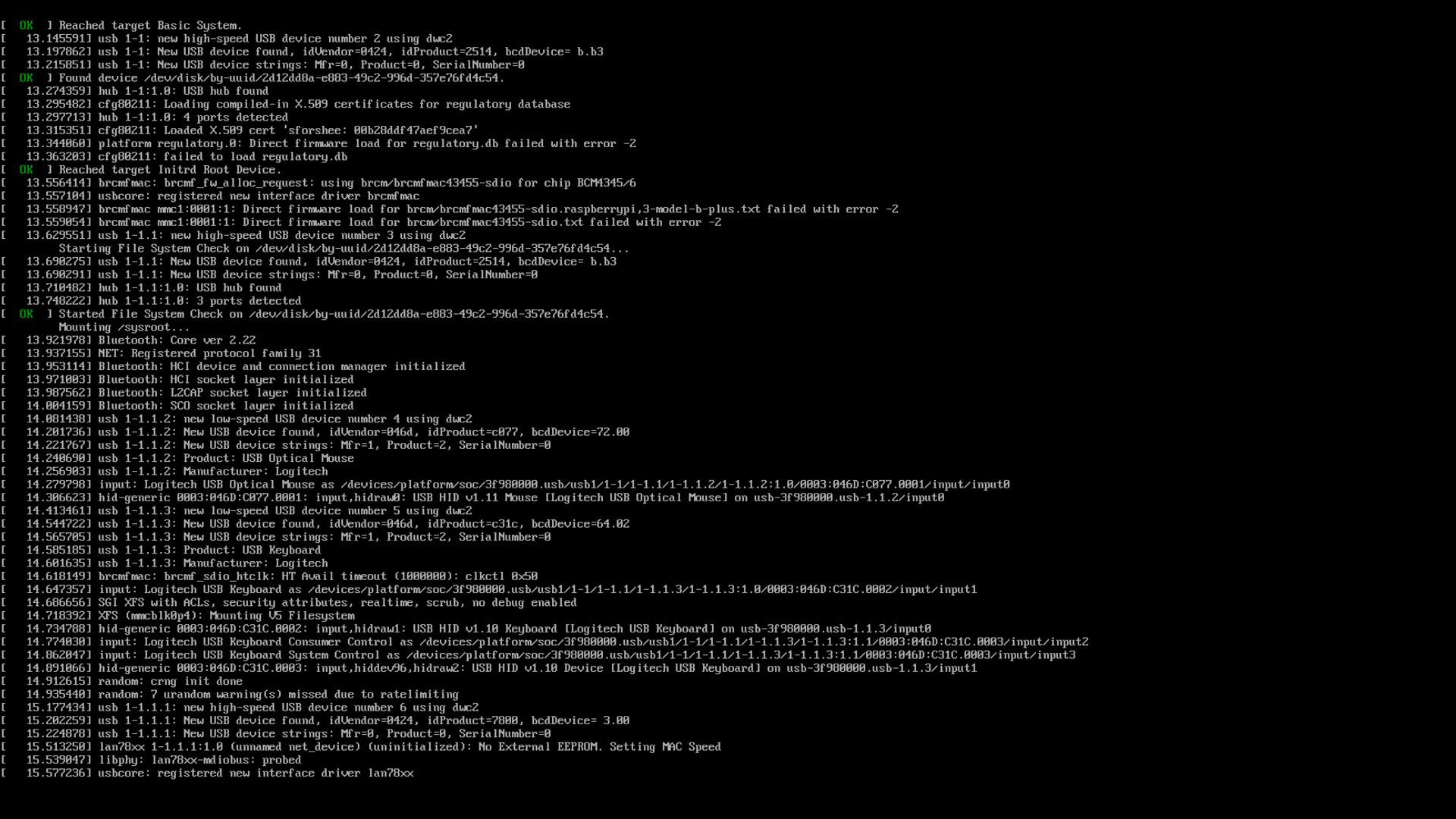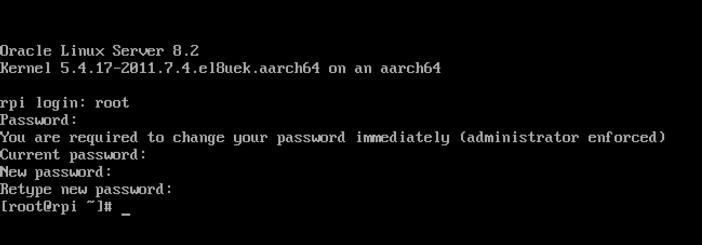First, lets chat about Oracle Linux on ARM! Having a single Enterprise Operating System on all Linux systems has several advantages, like using the same tools across all servers and access to the same commercial support for your systems. The use cases for ARM in your inventory of servers is also interesting, first there is the need for a small system, like a DNS server, or a remote access device, or even a Nagios system to monitor your enviroment. Basically any workload that has a low power and space requirement. This works well for the Raspberry Pi devices, tucking on into a wiring closet for a backup DNS server, or inside an Exadata cabinet to enable remote access. You can even use a PI as a monitoring system, or a web server in a DMZ.
With Oracle Linux you also get access to the UEK kernel with it’s enhancements, including tools like ansible! Oracle Linux includes all the major technologies in one low price for support, and you always have the option of using it for free, you can even patch for free. s far as ARM goes, the platform is also not a limited platform, you have commercial software available like MySQL 8.0 avaialble to you as well as a large amount of open source software available.
It’s not just the Raspberry PI use cases that are powerful, when you get to the larger ARM based sevices and you open up a huge number of use cases for edge computing. Bringing data from the cloud into the locations that need low latency access to the data. With MySQL 8.0 replication features, you can easily replicate data from the cloud to the edge, maintaing performance while at the same time leveraging the high core counts and low power requirements of ARM systems made from companies like Ampere, that offers an 80 core CPU with a low 210w of power consumption.The high core counts combined with container technologies like docker and kata enable a distributed microservicies architeture, with centrally maintained applications that take advantage of the cloud’s automation but still provide the performance of tradition on premise solution. This I feel IS the future of IT.
That being said, lets get Oracle Linux on a Raspberry PI.
While I have been using Oracle Linux on ARM, and installing it the hard way, there is now a much easier way to install it. Oracle offers free images for the Raspberry Pi, with the OS already installed. Save yourself the headache, and just download the Oracle image from here; https://www.oracle.com/linux/downloads/linux-arm-downloads.html
Next you will need to write the image to a SD card. The easiest way to do this from a Windows system is to use balenaEtcher, a free utility that makes it easy to write images to SD cards and USB drives. You can download it from here; https://www.balena.io/etcher/
Next run Etcher (make sure you right click on it and run as administrator )and select the image file as the source, ad the SD card as the destination.

Etcher can automitaclly work with the compressed file, so in a minute or two you should have a SD card with the image installed.
Next, pop the card into your PI, and boot the PI!

Yup, this is that easy!
Once you are booted, login as root with the password “oracle”. The system will require you to change the password.

Now it’s up to you on what you want to insatll. By default it has access to the free Oracle public yum server, so yum works out of the box.
For OL8, you have access to the follwoing repos;
- BaseOS latest, the basic OS and utilities
- AppStream Latest, with programs link bind, corosync, evolution, firefox, freeradius, perl libraries ,php , x and more
- EPEL, things like ansible , hwinfo, cacti, nagios, strongswan ( for VPN) . Currently this has to be manually added /etc/yum.repos.d. just add a file EPEL.repo with the following;
[ol8_EPEL]
name=Oracle Linux 8.2 EPEL ($basearch)
baseurl=https://yum$ociregion.oracle.com/repo/OracleLinux/OL8/developer/EPEL/$basearch/
gpgkey=file:///etc/pki/rpm-gpg/RPM-GPG-KEY-oracle
gpgcheck=1
enabled=1
Take a few minute to play around, you should find plenty of uses for Oracle Linux on PI.
Great website and write up. I plan on purchasing Raspberry Pi 4 and wanted to install Oracle Linux 8 (latest release).
I just installed the latest version on a 4b, no issues. Use the 4b to run an all-sky camera for 24x7x365 imaging.
The image file will not boot. Any suggestions? Etcher worked just fine. I have tried several ARM images – none work. I have a rapsberry Pi 4B.
Make sure the image you downloaded is supported on the PI you are using.
On a raspberry pi 4, change the HDMI port.